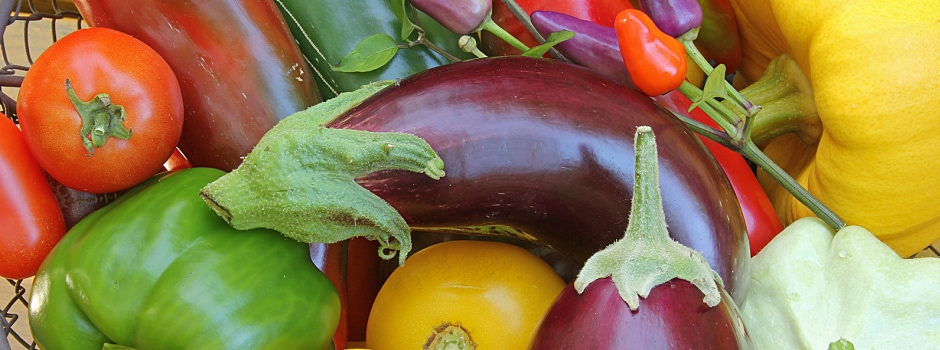Nightshade vegetables have been receiving a lot of attention in the media—some of it's positive and some of it's negative. If you're wondering what nightshades are, or whether they're actually good for you, here's what you need to know.
What Are Nightshade Veggies?
Nightshade veggies prefer to be grown in the shade, which is where they get their name. Some even flower at night. Most nightshade vegetables are part of the Capscium and Solanum plant families and examples include the tomato, tomatillo, eggplant, potato (excluding the sweet potato), pepper (including hot and sweet varieties, as well as spices like paprika, chili powder, cayenne, and Tabasco), pimento, and goji berry.
The Myths
Nightshade veggies have been linked to numerous ailments, including arthritis, migraines, and osteoporosis. Some even believe that these vegetables are poisonous to humans. Luckily, many of the claims around these delicious vegetables aren't true.
Deadly Nightshade Mix-Up
Some believe that nightshade veggies are harmful because they're confusing them with "deadly nightshade," which is an inedible weed called Atropa belladonna and is also part of the Solanum family. Regardless of this association, the toxin that's present in deadly nightshade is not found in nightshade veggies.
Solanine
A further concern is that nightshade veggies contain solanine. Solanine is a toxin that nightshade plants use as a defense mechanism against insects. However, levels of solanine in edible nightshade vegetables are negligible and not dangerous to humans. The only exception here is with potatoes that have gone bad and turned green, which indicates that you should avoid them.
Oxalic Acid
Some also argue that nightshade veggies are high in oxalic acid, which can inhibit the absorption of calcium, weaken the bones, and eventually lead to osteoporosis. However, nightshade veggies are not high in oxalic acid, especially when compared to the usual culprits, such as coffee, chocolate, and wheat products.
Gout and Acidity
Nightshade veggies are a common concern for people who have gout, a metabolic disorder that causes arthritis. Foods that are high in purine, an amino acid, are known to cause flares in gout, but there has been speculation that nightshade vegetables are also a contributor. In reality, not only are nightshades low in purine, but a study observing tomato consumption as a gout trigger found no descriptive or observational data to support the claim. So while nightshade vegetables are considered acidic, there's no need to be concerned.
The Reality
The research available strongly points to the conclusion that nightshade veggies aren't detrimental to human health. In fact, these vegetables are full of antioxidants, vitamins, and minerals. Studies on tomatoes and peppers have also found that these common nightshade veggies actually have anti-inflammatory properties.
Many cultures have made nightshade veggies, such as potatoes and tomatoes, a main staple in their diets for centuries, so you can rest assured that these foods are safe. With that being said, if you notice that any of the vegetables within the nightshade family cause you discomfort, you may have a sensitivity to that food and you should discuss that with your doctor.
While there's a lot of negativity floating around about nightshades, these are mostly rumors. Follow these tips and stay confident about the healthfulness of these vegetables as you eat them or add them into your diet.
